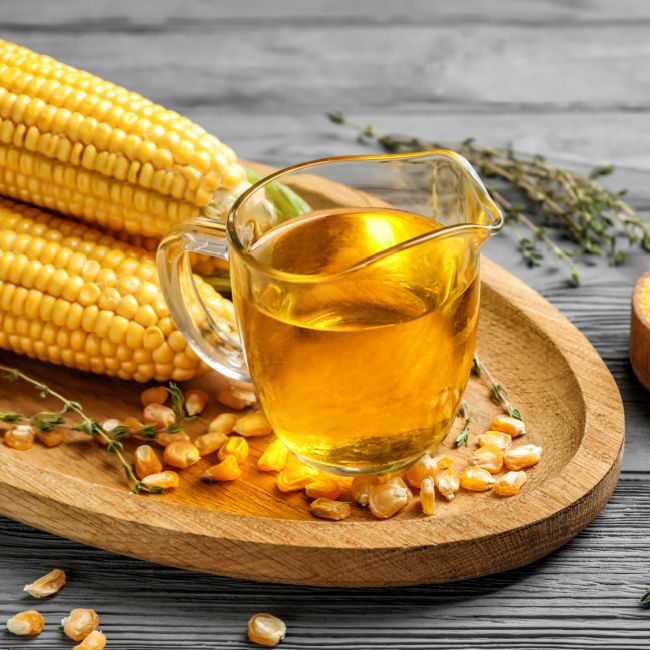
1. Soybean and corn oil
For starters, Dr. Manzi emphasizes the detrimental effects of soybean oil and corn oil, primarily due to their high omega-6 fatty acid content. She highlights, "Omega-6 fatty acids, while essential in small amounts, can promote inflammation when consumed disproportionately to omega-3 fatty acids," a.k.a. healthy fats. This disproportionate consumption, prevalent in the Western diet, contributes to chronic inflammation, a precursor to various diseases including heart disease, type 2 diabetes, and obesity.
"The excessive intake of omega-6 fatty acids, primarily through processed and ultra-processed foods that utilize these oils, exacerbates weight gain by promoting an inflammatory state that can disrupt metabolic health and increase fat storage," Dr. Manzi explains. Yikes!
2. Partially hydrogenated oils
Another potentially perilous type of oil highlighted by Dr. Manzi is partially hydrogenated oils. These are usually found in processed foods, especially commercial baked goods, and are also frequently present in shortening. They're notorious for their trans fats content. "Trans fats, formed by adding hydrogen to vegetable oil, significantly elevate LDL (bad) cholesterol while decreasing HDL (good) cholesterol, doubling the risk of heart disease," Dr. Manzi warns. Moreover, trans fats contribute to systemic inflammation, insulin resistance, and weight gain. The inflammatory response induced by trans fats leads to cellular damage, amplifying the risk of obesity and related metabolic disorders. For these reasons, it's best to avoid these oils as much as possible.
Use olive oil instead
In light of these risks, Dr. Manzi advocates for healthier alternatives to these harmful oils, with extra virgin olive oil (EVOO) standing out as a stellar choice. This heart-healthy oil is packed with benefits. She recommends EVOO for its rich content of monounsaturated fats and polyphenols, which confer anti-inflammatory benefits, thereby reducing the risk of chronic diseases such as obesity. The phenolic compounds in EVOO, particularly oleocanthal, exhibit anti-inflammatory properties, making it an excellent choice for an anti-inflammatory diet," she assures us.
Incorporating EVOO into one's diet not only aids in weight management but also improves heart health and lowers inflammation levels. Ultimately, Dr. Manzi underscores the importance of choosing oils wisely, advocating for those rich in monounsaturated fats and omega-3 fatty acids, while steering clear of oils high in omega-6 fatty acids and trans fats.
READ MORE: 4 Morning Mistakes That Doctors Say Make Inflammation And Weight Gain So Much Worse


